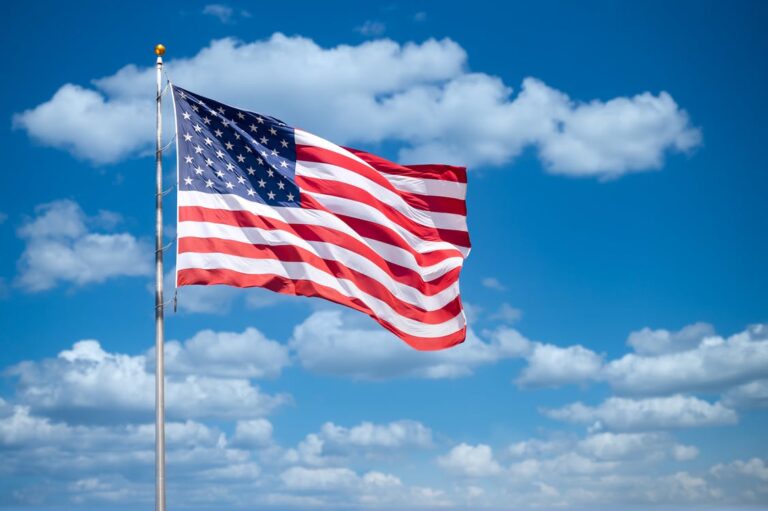
By Zhong Sheng, People’s Daily
The consumer price index of the U.S.in March rose by 8.5% from a year ago, the fastest annual gain since December 1981, according to the U.S. Department of Labor. Though the inflation rate slowed to 8.3 percent in April, it still was the highest in the recent decades.
High inflation has become a nightmare for the U.S. in the recent couple of years, making life harder for many families that are already in the grip of poverty. Some of them are even facing the hard choice between gassing up their cars and paying child care expenses. Such struggling is a mirror of the widening wealth gap in the U.S.
High inflation eats away disposable income, and low-income families in the U.S. are the primary victims.
According to statistics, the average hourly pay of American laborers rose 5.6 percent in the past 12 month, which was far lower than the current inflation rate.
The high inflation is placing prominent impacts on poor families that spend most of their income on living expenses. However, its impacts on the rich are significantly smaller. U.S. Fed governor Lael Brainard said low-income families spend 77 percent of their income on daily necessities, while the figure is only 31 percent among high-income families.
A report by the Wharton School of the University of Pennsylvania pointed out that the high inflation will further widen the wealth gap in the U.S. this year, and the poverty rate in the country will continue rising.
The impacts from the high inflation, weighing differently on the rich and the poor in the U.S., vividly explains the same old story of the American society that the rich get richer and the poor get poorer.
The U.S. has the biggest wealth inequality among all Western countries. Its Gini coefficient rose to 0.48 the last year, almost reaching a record high in the recent half century.
As revealed by reports of the Institute for Policy Studies, a U.S. think tank, the combined wealth of American billionaires soared 19-fold between 1990 and 2021, while over this same period, U.S. median wealth only increased 5.37 percent.
The stimulus policy that the U.S. has introduced in response to COVID-19 has led to surging government deficit and monetary inflation. The rich people are the only group that benefited from the policy.
According to Oxford Economics, the Americans on the top 20 percent of the U.S. income list saw their total fortune increase $2 trillion between March 2020 and January 2021, while the last 20 percent suffered a loss of $180 billion.
Renowned American investor Stanley Druckenmiller once criticized that the Federal Reserve is the greatest engine of inequality.
As the widening wealth gap exacerbates social inequality, the grass roots in the American society are facing more and more human rights challenges.
It’s never a coincidence that COVID-19 infections and death rates are higher among the poor people in the U.S. After the outbreak of COVID-19, tens of millions of Americans were thrown into a food crisis, and the life expectancy of the poor people was on a continuous decline.
“The neglect of poor and low-wealth people in this country during a pandemic is immoral, shocking and unjust,” said William Barber, co-chair of the Poor People’s Campaign.
When the rights to life and health of Americans are measured by wealth, “all men are created equal” is just an empty talk, and it’s just unrealistic for everyone in the country to enjoy human rights.
The failure of the U.S. economic and political systems and governance is what caused the “incurable” wealth gap in the country. As a matter of fact, the so-called American democracy has long become something that is of the rich, by the rich and for the rich.
From the Occupy Wall Street in 2011 to the Harambe the gorilla’s statue standing in the way of the Charging Bull on the Wall Street the last year, the U.S. citizens have never stopped making voices of dissatisfaction against the growing polarization between the rich and the poor.
However, American politicians didn’t take any action to fill the wealth gap. On the contrary, they made policies to further widen it.
Joseph Stiglitz, who was awarded the Nobel Prize in Economics in 2001, attributed the economic inequality in the U.S. to the country’s political and economic systems. Professor Jeffrey Sachs at Columbia University also said that the American politics has become an insider’s game to favor the super-rich and corporate lobbies at the expense of the overwhelming majority of citizens.
“States have the right and the duty to formulate appropriate national development policies that aim at the constant improvement of the well-being of the entire population and of all individuals, on the basis of their active, free and meaningful participation in development and in the fair distribution of the benefits resulting therefrom.” This is written in the UN Declaration on the Right to Development adopted 36 years ago.
Today, the alienation of democracy in the U.S. has become a barrier for American grass roots to enjoy human rights. If the U.S. can’t get over the governance predicament, it will only see worse human rights situations.
(Zhong Sheng is a pen name often used by People’s Daily to express its views on foreign policy and international affairs.)










